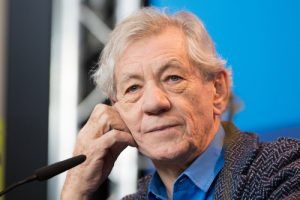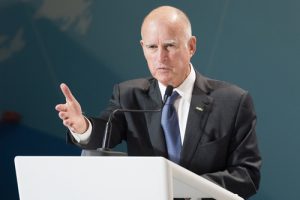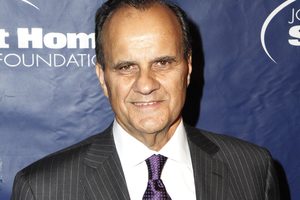4. Ian McKellen
 Sir Ian McKellen is a 76-year-old British actor better known for his roles as Gandalf in The Lord of the Rings trilogy or Magneto in X-Men. Six years after fighting prostate cancer in 2012, he went public with the diagnosis and announced he was living a healthy life. McKellen’s prostate cancer was slow-growing and did not spread to other parts of the body while he alerted every
Sir Ian McKellen is a 76-year-old British actor better known for his roles as Gandalf in The Lord of the Rings trilogy or Magneto in X-Men. Six years after fighting prostate cancer in 2012, he went public with the diagnosis and announced he was living a healthy life. McKellen’s prostate cancer was slow-growing and did not spread to other parts of the body while he alerted every
McKellen’s prostate cancer was slow-growing and did not spread to other parts of the body, but he used his fame to alert all men to get treatment as soon as possible.
“Many, many men die from it, but it’s one of the cancers that is totally treatable, so I have ‘waitful watching.’ I am examined regularly and it’s just contained, it’s not spreading. I’ve not had any treatment,” he told the UK’s Mirror.
5. Jerry Brown
 In 2012, the California Governor and ageless politician Jerry Brown announced he was receiving treatment for an early-stage prostate cancer. Despite the fact that he didn’t disclose when the diagnosis was confirmed, the prognosis was encouraging since the cancer was caught early and in 2013, the governor ended treatment with radiation therapy and announced that he had beaten the cancer.
In 2012, the California Governor and ageless politician Jerry Brown announced he was receiving treatment for an early-stage prostate cancer. Despite the fact that he didn’t disclose when the diagnosis was confirmed, the prognosis was encouraging since the cancer was caught early and in 2013, the governor ended treatment with radiation therapy and announced that he had beaten the cancer.
“The prognosis is excellent, and there are not expected to be any significant side effects,” he said in a statement at the time Dr. Eric Small of UC San Francisco, the 77-year-old governor’s oncologist explained that the prostate cancer was “localized,” and that Brown was expected to make a full recovery after receiving “a short course of conventional radiotherapy,” and that the governor would be continuing to work during the treatment.
6. Joe Torre
 74-year-old Joe Torre was a basketball player and manager for the Yankees. In 1999, he was diagnosed with an aggressive form of prostate cancer. Ever since, he has become an outspoken advocate and talks about the emotional burden of dealing with prostate cancer and the importance of the support he received from his wife, Ali. “So many people have asked me how I dealt with my prostate cancer. Well, I knew for sure as a baseball player for 17 years and then as a manager of pro teams that I had to start practicing what I preached,” he said in a 2000 interview with the Johns Hopkins Prostate Bulletin.
74-year-old Joe Torre was a basketball player and manager for the Yankees. In 1999, he was diagnosed with an aggressive form of prostate cancer. Ever since, he has become an outspoken advocate and talks about the emotional burden of dealing with prostate cancer and the importance of the support he received from his wife, Ali. “So many people have asked me how I dealt with my prostate cancer. Well, I knew for sure as a baseball player for 17 years and then as a manager of pro teams that I had to start practicing what I preached,” he said in a 2000 interview with the Johns Hopkins Prostate Bulletin.
“This basically boiled down to the fact that if you have a bad day or week, and if you or your team are not doing particularly well, you need to find effective ways to deal with it. You must become proactive and get into the attack mode, doing everything you can to get answers. This approach is what I had to bring to my own cancer treatment. What scared me initially, in addition to my cancer, was that I didn’t have the answers I needed. It certainly was a very difficult time emotionally. I was a mess, my blood pressure had skyrocketed—all from being scared about the cancer and what I had to do about it.”

